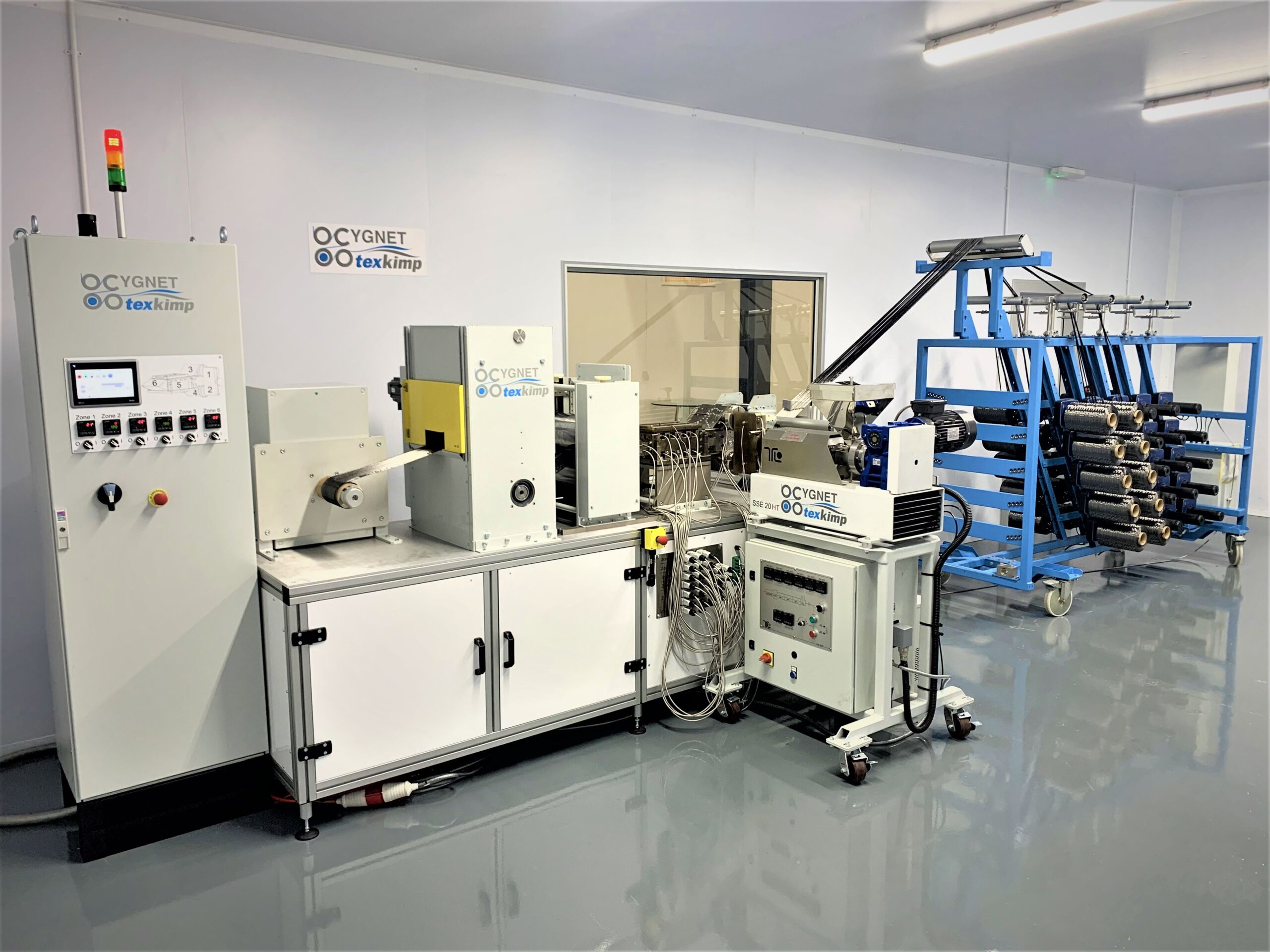Cygnet Texkimp (Northwich, UK) has installed a lab-scale version of its thermoplastic processing equipment at its UK-based Innovation Centre to enable faster development of plastics technology through dedicated customer trials.
The fibre handling and converting technology specialist is making its Direct Melt Impregnation Thermoplastic Composite Line available to help companies develop new materials and material combinations to manufacture thermoplastic prepregs and tapes.
“We’re enabling manufacturers to explore a new and novel technology, prove out their concepts, and carry out innovative product development before choosing to invest,” explains Cygnet Texkimp’s Ben Lloyd.
“The fast-moving composites sector needs this kind of dedicated environment to speed up adoption of new technology and support innovation. The response from the market has been phenomenal and we’re completing trials on a wide range of different materials.”
At 5m long and 1m wide, the lab-scale machine is half the size of the full-scale line (which was launched in 2020 as a compact solution with a small footprint) but delivers all the capability of the original technology. It is applicable for polymers ranging from polypropylene to PEEK and can process a range of fibres including carbon fibre, glass fibre and hybrid fibres. The technology is scalable to 600mm wide and can manufacture prepregs measuring down to 0.1mm in thickness.
The company is working with organisations from the automotive, aerospace, construction and energy sectors, many of which want to produce their own materials to fulfil their exact needs.
“Proving out new materials alongside our R&D and product specialists allows customers to develop new applications more easily, quickly and cost-effectively,” says Ben Lloyd.
“This collaborative approach enables both parties to refine and advance the technology to achieve a solution that is tailored to the application and proven in its effectiveness.”
The lab-line can be customised to produce material with a specific weight per metre, heat resistance, strength, rigidity and impact resistance, and the customer can gather data on their material before taking the next steps to put it into production.
Direct Melt Impregnation Composites Line
The Direct Melt Impregnation Thermoplastic Composite Line was launched by Cygnet Texkimp in 2020 as the world’s first commercially available thermoplastic composite line capable of using polymer in standard form to create high-grade thermoplastic prepregs on an industrial scale.
The technology combines standard polymer pellets with a polymer and fibre matrix extrusion methodology to simplify and shorten the process of manufacturing thermoplastic prepreg materials while maintaining the quality of the end product. In this way, Cygnet Texkimp has created a short, space- and time-saving line that transforms fibre into thermoplastics in a compact space without requiring specialist knowledge to operate.
It was designed to transform the way high-grade thermoplastic composites are manufactured and make them more easily accessible to high-volume markets including automotive and construction where it can be used to manufacture strong, lightweight, durable, recyclable car parts and building materials quickly and reliably.
For high-volume automotive manufacturers and their customers, for example, the technology offers compelling sustainability and environmental benefits. Using thermoplastic parts such as bumpers, crash structures and interior components will make cars more easily reparable and recyclable as well as cleaner and less expensive to manufacture.
Cygnet Texkimp is also a leading manufacturer of thermoset prepreg machines and began developing its thermoplastic technology as interest in the methodology has grown in line with the expansion of the composites market.
Thermoplastics offer a faster and more cost-effective route to composite manufacturing than thermosets because there is no chemical reaction to be managed. The polymer is simply melted and set to create prepreg material, for example, which can be remelted and set to form parts.
Cost and space savings are available because a full-scale thermoplastic processing line has a considerably smaller footprint than a conventional thermoset machine. There is no need for resin mixing equipment, coating machinery or paper rewinds in the manufacture of thermoplastic composites. They don’t require ovens or autoclaves to process them, special handling equipment to manipulate them on and off the manufacturing line, or freezers to store and transport them.

